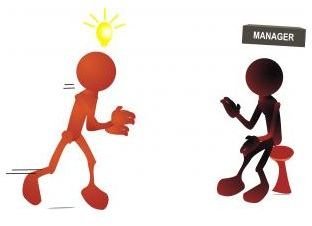Understanding Why Managers Need Emotional Intelligence
What is Emotional Intelligence?
Fifty years ago, someone’s intelligence was measured in just one way—in an IQ test that explored the person’s ability to comprehend
and then exercise logic. High IQs were the benchmark for success and achievement in the business world. Then, in the 1980s, people began paying attention to theories about multiple kinds of intelligence. Scientists have delineated several types, such as logical, creative, existential, kinesthetic, and several others, including both interpersonal and intrapersonal intelligence.
In 1995, California psychologist Daniel Goleman elaborated on this theme in his book about the necessity of social and empathic collaborations. He was not the first person to recognize that people’s motivations and behaviors play a role in their ability to function—earlier research dates back to E.L. Thorndike’s work in the 1920s and, some say, even back to the work of Charles Darwin. In the last decade, however, theories have developed based on Goleman’s premises that emotional intelligence extends beyond how we conduct our everyday lives; human resources managers need emotional intelligence in order to lead and counsel people effectively. Also, evidence shows that having one kind of intelligence does not preclude other kinds of intelligence.
Daniel Goleman’s Emotional Intelligence Model
Goleman described four main quadrants of emotional intelligence. Just as this theory applies to each individual person, so do managers need emotional intelligence:
- First is the person’s awareness of self—his ability to recognize his own level of emotional involvement and how it affects his performance.
- Next comes self management—once the person recognizes his emotions, he must work on controlling and developing them.
- The third area is called social awareness—the person’s ability to recognize that other people are affected by emotions.
- The last aspect is relationship management—the ability to inspire people to achieve through the comprehension of social behaviors.
Baaah! Who Needs Emotions?

Many leaders believe that maintaining focus and staying task-oriented are the only requirements for performance excellence. They do not believe that managers need emotional intelligence. They insist that there is no room for emotions in the workplace and that people should leave their hearts at home. And maybe you are among those managers.
Today’s research shows, however, that the managers who decry the validity of emotional intelligence are the very ones who lack it. They are the managers whose team members will not succeed at collaboration nor will they deal well with change in the workplace. If you are that type of manager, you cannot move on to emotional intelligence until you recognize the effects of emotions on daily activities and use this knowledge to draw the best from your people.
If you have no other motivation, consider that 80% of job applicants put themselves on the job market—whether or not they ultimately attain better salaries or positions—because there was a personal or interpersonal conflict at work.
The Key to Emotional Intelligence
Scientists use a variety of adjectives to characterize this rather visceral quality. The one word, however, that you will hear over and over again is empathy. Empathy is defined as the ability to reference your own catalog of experiences and emotions in order to understand someone else’s experiences and emotions.
Once you recognize the impact of a worker’s emotions on the quality of his daily job performance, you can use your own empathy to help the person realize the extent his emotions play in his level of success. As he gains understanding of emotional responses, he learns how to control them. This becomes an effective management technique for the human resources manager because it works whether you’re dealing with one struggling person or with a whole team.
Expressing or Developing Empathy
When one of your team is going through a difficult time, let him talk, and as he pauses you can respond by saying, “I see” or “I

understand.” These two phrases are very successful at reassuring someone but you’re not actually making a commitment. You can then follow up by asking specific questions such as:
- What makes you say that?
- Can you give me an example of that?
- Can you explain why you feel that way?
- Why do you think he did that?
- How do you wish things had gone?
- I didn’t know about that. Can you tell me more?
- I think you just said (give feedback). Is that right?
- How could things have ended differently?
- What are your worries?
The Physiologic Responses to Our Emotions
Managers who question the theories of emotional intelligence will find reassurance in the tangible neurophysical evidence of emotional interference with work performance. Studies show the endocrinologic effects of the HPA axis, in which the pituitary gland, hypothalamus, and adrenal cortices send each other warning signals when affected by stress. Blood pressure ratchets up. Cortisol levels rise. Response to emotional memory is regulated within the amygdala. Emotional intelligence is not an abstract concept. Managers need emotional intelligence in order to assure and motivate the individual worker and also to inspire groups of people working together within the company framework.
Read More About It:
Goleman, Daniel. Working with Emotional Intelligence (10th edition). Bantam Books, 1998.
Image Credits:
[sxc.hu, business concepts, by Arte Ram](/tools/sxc.hu, business concepts people 7 by Arte RamLearning to reach into your own past experiences in order to understand your employees’ emotions will help sxc.hu, business concepts people 7 by Arte Ramyou to help them. Do you remember the happiness you felt on your first day of work? Can you recall the first time your satisfaction was tainted by some kind of disappointment or reprimand? Consider your past experiences, and learn to become a good listener.)
